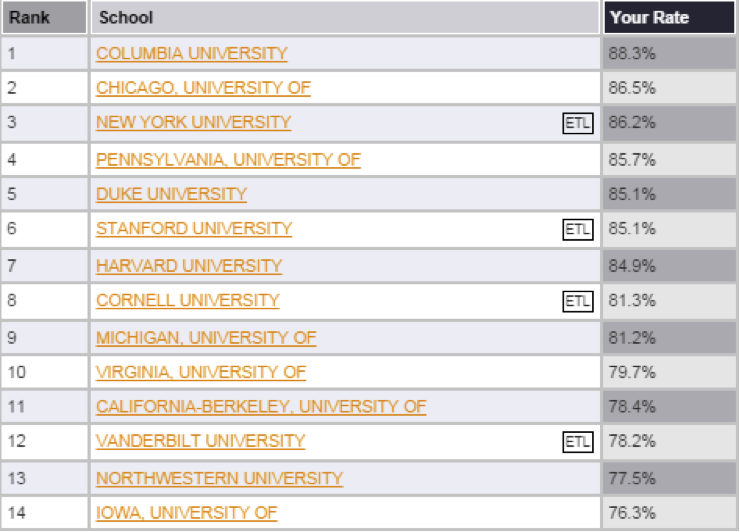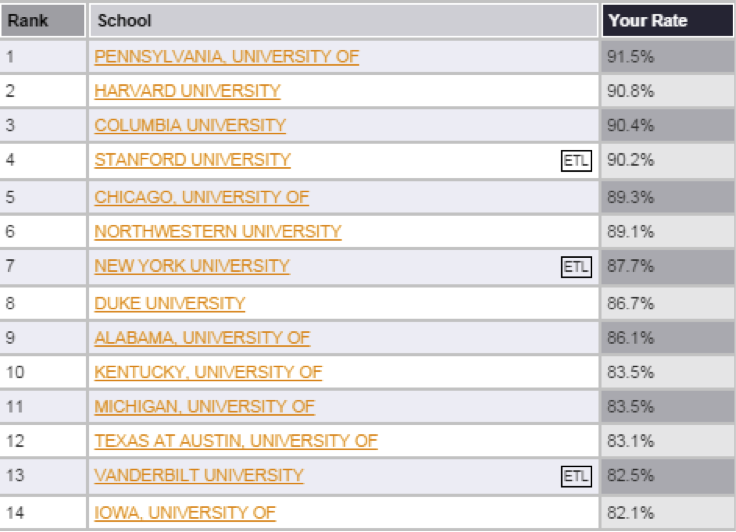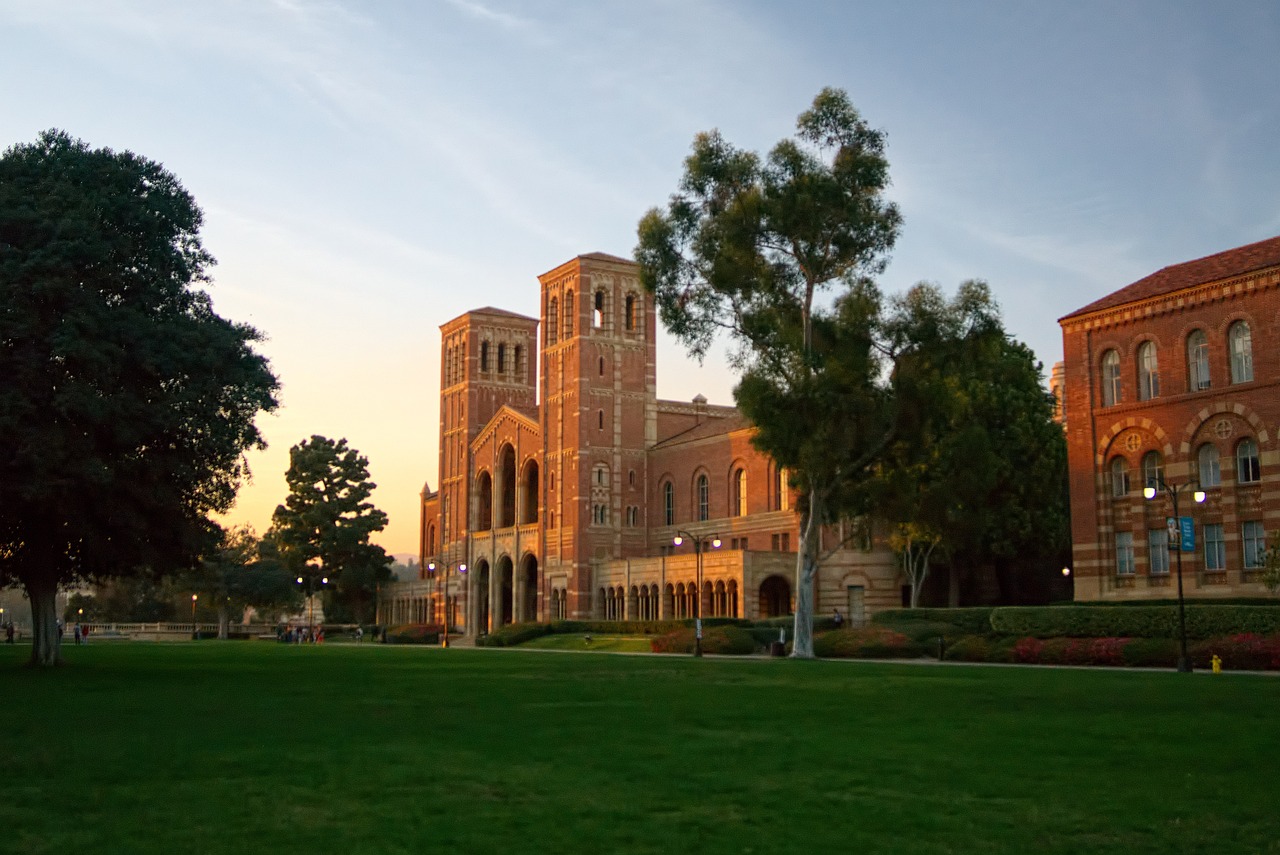
Determining the “best” law schools has been a hotly contested field over the last few years, with everyone wanting to get a piece of the ranking action. U.S. News & World Report is the most common ranking system, incorporating various factors including selectivity, perception by peers, and job placement. Above the Law has its own rankings with a much greater emphasis on employment outcomes, while Law.com created rankings focused on LSAT score, employment, and journal citations.
When it comes to students actually deciding which school to attend, however, employment prospects reign supreme. In a survey earlier this month, just over half of Blueprint LSAT students said that they valued “Prestige of Law School/US News & World Report ranking” above other factors when deciding which law school to attend, in part because they think attending a prestigious school will lead to a better job.
One variable that students might want to take into account is the distinction between jobs for which bar passage is required and jobs that are considered “JD advantage.” NALP defines “JD advantage” jobs as “a category of jobs for which bar passage is not required but for which a JD degree provides a distinct advantage.” As opposed to actual law practice jobs, which would require passing the bar, these jobs can include positions such as a corporate contracts administrator, FBI agent (?!), and government regulatory analyst. The ETL calculator allows you to include or exclude these jobs when calculating graduate employment rates.
For instance, let’s take a look at jobs that are full-time, long-term, and require bar passage (so we are excluding JD Advantage jobs); let’s also exclude school-funded jobs, which are often temporary. Here’s how our ranking of the Top 14 would look:

The ranking we’ve generated contains many of the usual suspects, but it also contains some surprises, such as the University of Iowa (#27 in U.S. News and World Report). Conspicuously missing from this list is Yale, which USNWR has ranked #1 in every year that it’s published law school rankings – but which falls to the 17th spot based on these criteria.
So this calculator is intriguing because, as opposed to rankings like USNWR that use a mysterious mix of Colonel Sanders’s 11 secret herbs and spices, students can decide what’s important to them and rank schools accordingly. Indeed, you might decide that you’re totally fine with the possibility of ending up with a JD Advantage job after graduation (after all, who wouldn’t want to be a secret agent?). With a couple of clicks, you’d be looking at rankings like this:

Suddenly, the traditional elites look more impressive, as do large states schools like Alabama and Kentucky.
When deciding which law school to attend, you’ll want to take into account factors besides employment outcomes. However, it is important to consider what kind of job you’re likely to get after law school, and the ETL calculator can help you get a clearer idea of that.




